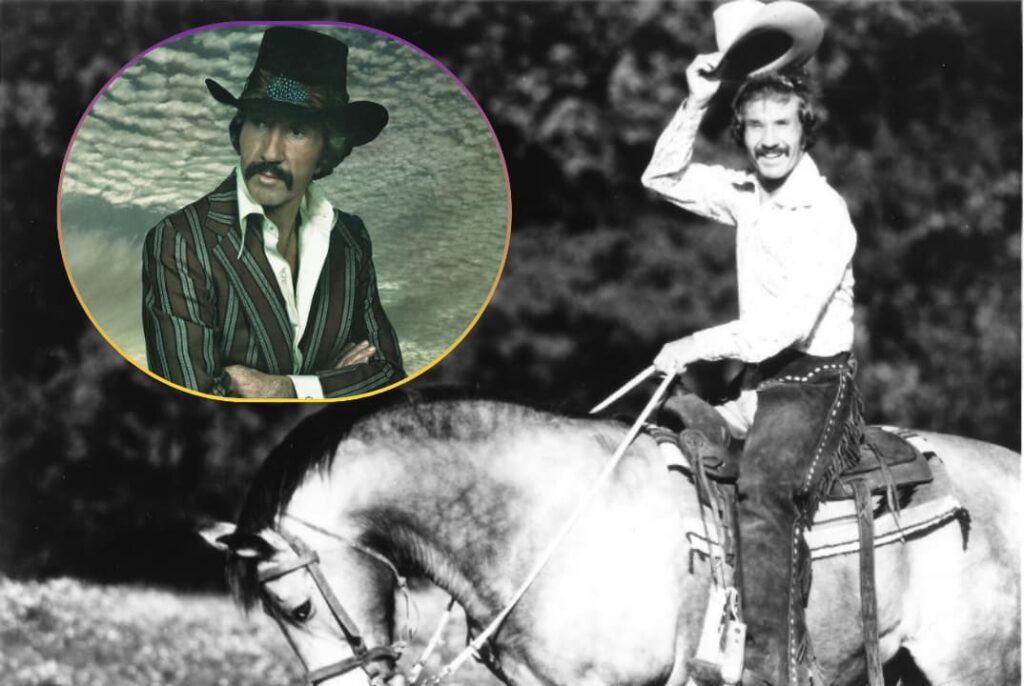
The Timeless Ballad of a Cowboy’s Regret: A Haunting Melody from the Old West
Ah, the whispers of the past, carried on the breeze and etched into the very fabric of American folklore. For many of us who remember a time when stories were told around campfires and radios served as windows to distant lives, few songs resonate with such enduring power as Marty Robbins’ “Streets of Laredo.” It’s more than just a song; it’s a painting in sound, a somber, poignant reflection on youth, mistakes, and the inevitable passage of time. Released in September 1960 as part of his iconic album “More Gunfighter Ballads and Trail Songs”, this timeless ballad didn’t necessarily set the charts ablaze in the same way some of his more boisterous gunfighter tales did, but its impact has been far more profound and lasting. While Marty Robbins was certainly no stranger to chart-topping success, with hits like “El Paso” reaching number one on both country and pop charts, “Streets of Laredo” quietly solidified its place as a cornerstone of the Western genre, a testament to its raw, emotional honesty rather than fleeting pop appeal. It’s a song that has been covered countless times by artists across genres, from folk to rock, further cementing its status as a foundational piece of Americana.
The story behind “Streets of Laredo” is as rich and winding as the dusty trails it evokes. It’s not a narrative born solely from Marty Robbins’ pen, but rather a descendant of a much older, almost forgotten lineage of ballads. This particular melody and lament can trace its roots back to 18th and 19th-century British and Irish folk songs, specifically a “broadside” ballad known as “The Unfortunate Lad” or “The Unfortunate Rake.” These earlier versions often depicted a young man dying from venereal disease, a stark and tragic consequence of a life of recklessness. As the song migrated across the Atlantic and took root in the burgeoning American West, its narrative began to transform, shedding some of its more explicit medical details for a more universally understood cowboy lament. The “unfortunate rake” became the “dying cowboy,” and the English “Lock Hospital” was replaced by the dusty streets of a Texas border town. Frank H. Maynard, an old-time cowboy, even claimed authorship of an early Western adaptation, “The Cowboy’s Lament,” in 1876, asserting that Texas cowboys themselves changed the title to “The Streets of Laredo.” This evolution speaks volumes about the oral tradition of folk music, how stories and melodies shift and adapt, absorbing the nuances of their new environments while retaining their core emotional truth.
The meaning of “Streets of Laredo” is both simple and deeply complex. At its surface, it’s the mournful confession of a young cowboy, “shot in the breast” and facing his imminent death on the harsh, unforgiving landscape of Laredo. He hails a passing cowboy, a figure who serves as both confessor and pallbearer, and recounts a life “once in the saddle, I used to go dashing,” but now tainted by “drinkin’ and then to card playin’.” His dying requests are heartbreakingly humble yet specific: a slow drum beat, a low fife tune, six jolly cowboys to carry his coffin, six dance-hall maidens to bear his pall, and roses to “deaden the clods as they fall.” It’s a plea for dignity in death, a final wish to be remembered not just as a sinner, but as a man who faced his end with a certain grace.
But beneath this surface narrative lies a more profound reflection on regret, consequence, and the allure and peril of the frontier life. The dying cowboy isn’t an outlaw in the traditional sense, but he’s “done wrong,” succumbing to the temptations of the saloon and the card-house. His story is a cautionary tale, a stark reminder that the freedom of the open range came with its own set of dangers, not just from outlaws and elements, but from one’s own choices. For older listeners, this song stirs memories of a bygone era, of simpler times, perhaps, but also of the hard lessons learned. It speaks to the universal human experience of looking back on one’s life, seeing the missteps, and yearning for a peaceful, respectful end. Marty Robbins’ somber, resonant baritone perfectly captures the weight of this introspection, delivering each line with a gravitas that makes the listener feel as though they are standing right there on those dusty streets, witnessing a soul’s final farewell. It’s a powerful evocation of the American West, not as a romanticized ideal, but as a place where life was hard, choices had consequences, and even the bravest among them could face a lonely, sorrowful end. It’s a song that settles deep in your bones, reminding us of the fragility of life and the enduring power of a story well told.